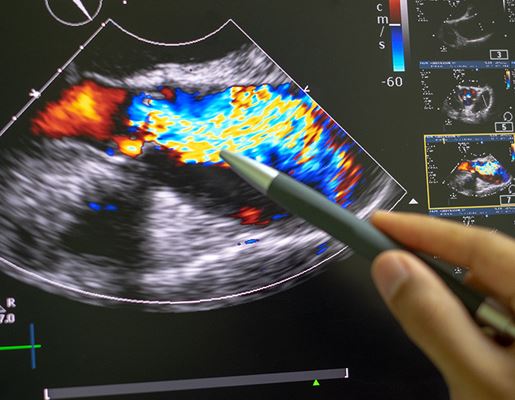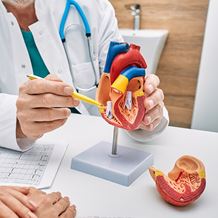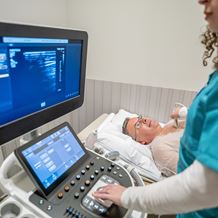What is heart valve disease?
Heart valve disease occurs when one or more of the heart’s four valves do not work as well as they should. The heart valves have an important job to do. They are responsible for maintaining a one-way system that keeps all the blood flowing in the right direction. As the heart muscle contracts, the heart valves open and close to let just the right amount of blood through – and prevent any blood from flowing backwards. Heart valve disease usually occurs as a result of two main issues:
- Stenosis – a narrowing of the heart valve opening that prevents it from working properly, causing the heart to overexert
- Regurgitation (leaky valve) – when the valve does not close properly, blood can leak back through to the heart
In some cases, these conditions can occur at the same time, with more than one heart valve affected.
Symptoms and causes
There are many reasons why heart valve disease can occur. These include changes to the heart structure through aging, other heart conditions that have damaged the heart such as a heart attack or heart failure, or infection. Some patients are born with the condition. Symptoms typically include:
- Chest pain
- Heart palpitations
- Breathlessness
- Extreme fatigue or weakness
- Dizziness
- Swollen ankles
- Bloating
- Coughing
- Weight gain
How is it diagnosed?
Your doctor will perform a series of tests as well as a thorough physical examination in order to diagnose heart valve disease. Diagnostic tests may include:
- Chest X-ray – to show any change in the heart structure
- Echocardiogram – to check how well the heart valves are working
- Electrocardiogram (ECG) – to detect any heart muscle damage or abnormal rhythms
- Computed Tomography Coronary Angiography (CTCA) – to check for any valve abnormalities
- Cardiac MRI – to produce detailed images of your heart
- Heart stress test – to understand how well your heart functions during exercise
Once your condition has been diagnosed, your doctor will recommend the best treatment pathway to suit your needs.
How is it treated?
As there are many different types of heart valve disease, the treatment program will look different for every patient and will depend on the underlying cause. In milder cases, observation and medication may be recommended to relieve symptoms. In other cases, heart valve disease treatment may include a procedure to help open up the valve (balloon valvuloplasty), or non-surgical valve repair. In more severe cases, surgery may be required to repair or replace a faulty valve.

Other conditions
What's next?
If you have been experiencing heart-related symptoms, book an appointment with our cardiac services specialist today.
Our specialists in Cardiac Services
View all specialists





